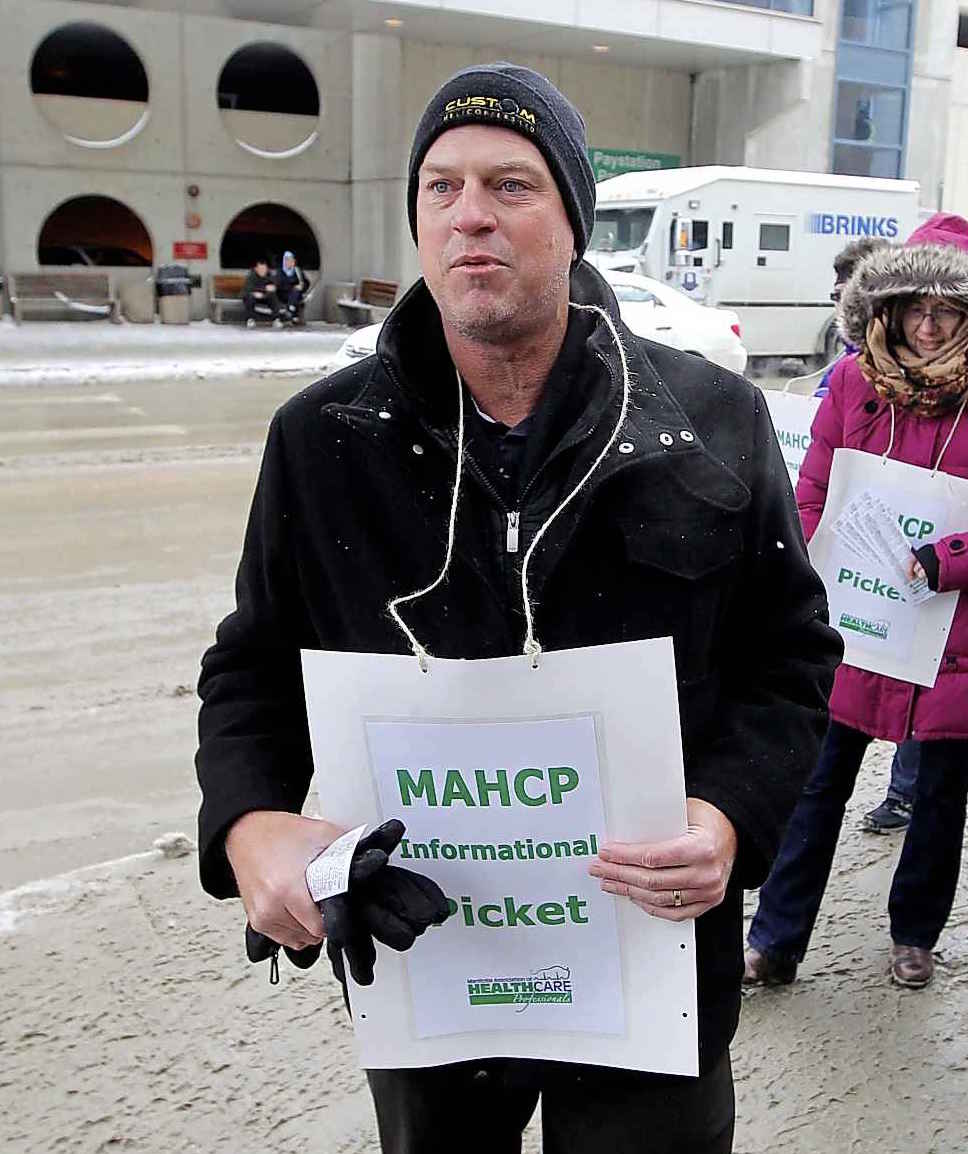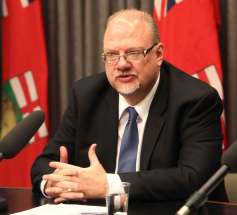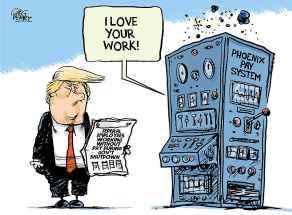MGEU sounds alarm over proposed bargaining unit contraction
Read this article for free:
or
Already have an account? Log in here »
To continue reading, please subscribe:
Monthly Digital Subscription
$1 per week for 24 weeks*
- Enjoy unlimited reading on winnipegfreepress.com
- Read the E-Edition, our digital replica newspaper
- Access News Break, our award-winning app
- Play interactive puzzles
*Billed as $4 plus GST every four weeks. Offer only available to new and qualified returning subscribers. Cancel any time.
Read unlimited articles for free today:
or
Already have an account? Log in here »
Hey there, time traveller!
This article was published 24/01/2019 (2231 days ago), so information in it may no longer be current.
A union representing Manitoba health-care workers says it’s worried home care workers and health-care aides may be forced to take on unfamiliar roles as a result of a decision this week by the province.
The Manitoba Government and General Employees’ Union, which represents 17,500 health workers, said Thursday it has grave concerns about a new regulation that would place home care workers and health-care aides in hospitals and personal care homes in the same bargaining unit.
MGEU president Michelle Gawronsky said she’s been told government wants the flexibility to use the workers and aides interchangeably. She said this news is upsetting both groups, some of whom have told her they’d rather quit than be forced to take on a new role.

‘Only a high-priced consultant who isn’t working on the front lines would try to improve quality of care by shuffling health workers around the system’
– MGEU president Michelle Gawronsky
“A good health-care system needs to support (its) health-care workforce, not stress them out and turn their lives upside down,” Gawronsky said at a news conference. “Only a high-priced consultant who isn’t working on the front lines would try to improve quality of care by shuffling health workers around the system.”
Health Minister Cameron Friesen said the MGEU’s assertion is incorrect.
“Staff will continue to have choice about where they work and what role they play in the system,” he said in a statement.
“The new regulation will enable support staff providing direct services to patients to deliver services where they are needed. It will also eliminate inefficiencies and artificial barriers within Manitoba’s health system, where staff doing similar jobs have different terms of employment and are often represented by competing bargaining agents.”
A spokesman for the Winnipeg Regional Health Authority also rejected the notion that placing home care workers and health-care aides in the same bargaining category would lead to employees being uprooted from their positions.
“We would never force somebody to move jobs,” he said.
The Pallister government passed legislation in 2017 to greatly reduce the number of health-care bargaining units in the province to three or four dozen from the current 180. It’s named a commissioner to steer the process, which has no end in sight.

‘Staff will continue to have choice about where they work and what role they play in the system’
– Health Minister Cameron Friesen
The vast majority of health-care workers in Manitoba are working under contracts that have expired. Many don’t know what union will represent them when they negotiate their next one. The bargaining unit rationalization process will necessitate a series of representation votes around the province, pitting union against union. No dates have yet been set for these votes.
On Thursday, the province issued a news release concerning a new regulation, which it had yet to publish by Free Press deadline, that further defined the new health-sector employment categories. In it, home care workers and health-care aides were lumped into the same bargaining group, upsetting the MGEU, which represents all the workers and a substantial number of the aides.
However, other labour groups also expressed concerns with the process Thursday.

Marie Buchan, director of operations with United Food and Commercial Workers Local 832, said the union originally thought it was going to have to participate in five different representation votes. Now, that’s climbed to eight.
“It becomes more and more complex every time we turn around,” she said.
UFCW represents 2,300 health-care workers across the province, more than half of which are located at St. Boniface Hospital in Winnipeg.
At St. B, the union represents 1,300 support workers in more than 100 classifications, including housekeeping, clerical workers, health-care aides, porters, and operating room attendants — all under one contract. Ironically, under the proposed changes, the health-care aides would be covered under a separate (although larger, city-wide) contract than the rest of the support staff UFCW currently represents at the hospital.
Bob Moroz, president of the 4,000-member Manitoba Association of Health Care Professionals, said his union is also frustrated with the amalgamation process. “There’s gigantic uncertainty,” he said.
While MAHCP and other health-sector unions were briefed Tuesday about the latest regulation, questions remain, he said. “We don’t really yet know the full implications of these regulations.”
larry.kusch@freepress.mb.ca

Larry Kusch
Legislature reporter
Larry Kusch didn’t know what he wanted to do with his life until he attended a high school newspaper editor’s workshop in Regina in the summer of 1969 and listened to a university student speak glowingly about the journalism program at Carleton University in Ottawa.
Our newsroom depends on a growing audience of readers to power our journalism. If you are not a paid reader, please consider becoming a subscriber.
Our newsroom depends on its audience of readers to power our journalism. Thank you for your support.








